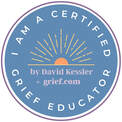|
“Communication leads to community, that is, to understanding, intimacy and mutual valuing.” — Rollo May
Communication is key to a successful relationship. Being able to talk openly and honestly with our partner leads to a healthy relationship. Yet, as I work with couples I have noticed that many of them have certain issues that tend to get avoided. When the conversation gets close to that certain issue they will often change the subject and begin to get uncomfortable. These are what I refer to as the landmines in a relationship. There is a real fear that if the topic is brought up it will blow up into an argument, so many couples avoid the area completely. While having one or two landmines in a relationship are usually easy to avoid, as more are created there become fewer and fewer safe topics to discuss and the relationship becomes threatened. Where do the landmines come from? Sometimes partners can describe exactly how the landmine was planted. They will tell of a big argument or fight they got into, which was never resolved. Anytime the issue was brought up to get resolved it blew up bigger, so eventually, to save the relationship, the subject got avoided completely. Other couples have landmines on areas of past trauma that they are unable to talk about. The couple knows the landmine is there because it accidentally gets detonated when something reminds them of the trauma, but for the most part it gets sidestepped. Other couples are completely unaware of landmine areas until they step on one and are surprised by the reaction. If you recognize having a landmine in your relationship, what do you do? First of all, it is important to acknowledge in a factual way that there is a topic which is getting avoided. This is an observation and not a judgement towards your partner. Once the topic is acknowledged, become curious about it. What is it activating in me? What are the fears or concerns that lead to that reaction? What would I need to hear or experience to be less reactive? Being able to talk about the landmine is the start of the deactivation process. If even gently touching on this area leads to a detonation, it may be helpful to seek professional counseling to support you in the deactivation process. Landmines are based on beliefs that lie under the surface, so bringing them up and becoming curious is how they begin to lose their power. Each time a landmine gets triggered, it is an opportunity to do some healing when it is dealt with in a healthy manner. Fear keeps them buried, but having the courage to bring up the landmine areas is what strengthens a relationship. What landmines have you been avoiding?
0 Comments
“If you don’t know someone who’s had a problem with addiction, you will.” –Dana Boente
Working in the addictions field is not easy. It is not predictable either. Some of the people who start treatment and sound like they are making healthy choices in their lives, end up relapsing, while others who struggle to start suddenly have a turnaround. Recovery is a journey and every person dealing with addiction and recovery need to forge their own road to determine what works for them. As I work with clients I discuss their window of choice and help clients to figure out what stretches it. I define addiction as both a choice and disease. As I envision it, there is a window of time when a person has a choice, but once it reaches the threshold, it flips into a compulsion. At that threshold, the disease of addiction takes over and there is no longer a choice in the matter. During active addiction, the window of choice is minuscule. There is not much time from when the person feels the urge to the time they start using. Recovery is about stretching the window of choice. So, what stretches the window of choice? Whenever a person does something that brings them peace and joy they stretch the window. When they feel connected with someone or when they are able to shift their perspective of a situation they gain more power to choose. Every time a decision to not use is made and honored the window gets bigger. I encourage my clients to make a list of things they can do to stretch the window of choice. They may listen to music, take a walk, journal or draw. It may take a lot of slow work to stretch the window of choice out enough to abstain or the window can seemingly stretch in the moment that the person hits rock bottom and decides that they need to change. Recovery is about continuing to stretch out the window and adding more time of choice before hitting the threshold. Stress shrinks the window of choice. When someone has a setback or faces the pain of confronting the repercussions of addiction it causes the window of choice to get smaller, which leaves them closer to the threshold of relapse. Understanding this balance is critical. The window can shrink slowly or it can vanish the instant a certain person, place or thing appears. The key to recovery is understanding the window of choice and continually monitoring the growth or reduction of the window. When the window begins shrinking, self-care is critical to stop it. I encourage the clients to revisit the list they created and encourage them to choose at least one thing to try from their list. If you or a loved one are struggling with addiction, become curious about the window of choice and have a discussion about how to support its growth. It could be the key to change! “Even when a situation seems so personal, even if others insult you directly, it has nothing to do with you. What they say, what they do, and the opinions they give are according to the agreements they have in their own minds.” Don Miguel Ruiz
The other day I was working with a client and he commented that the people around town are so rude. He went on to tell me a list of examples why, such as, people don’t smile at him or even say ‘hi’ when he walks by. He concluded that everyone was ignorant and judging him. I explored with him the story he was telling himself about the other people and then asked him why he cared so much about what these people thought about him. After a while, he discussed other times in his life when he felt like he didn’t belong. As mammals, we are social creatures. We have an innate desire to belong and to be accepted. When we feel like we are being outcast it is extremely painful. All of us have our own filter, through which we interpret the world. Our brains are amazing tools. They take in information and store it. These memories can serve us well, but they also color the way we see the world. There have been studies which show that when we have a history of trauma, even neutral events can become charged with emotion. Our brains become sensitized to pick up on the slightest cue that there is danger. Other people may say that we are overreacting to a situation, but to our brain, which is remembering the past event and working overtime to protect us, it isn’t an overreaction at all. If you find yourself taking comments personally, here are five tips:
“My goal is to make space for my selfhood. All of it. All of me, not just the parts I like or think that others like but all of it.” –Tracee Ellis Ross
We all have parts to us. Part of me may want to go out to eat, but another part wants to stay home. Part of me wants to clean the house on a Saturday morning, but another part wants to sleep in. It is normal for our parts to be in conflict with each other, but when they don’t agree, how do we decide who wins? I envision all of us to have many different parts within. These aspects of our self all have their own personalities. We all have a lazy part, but when the lazy part constantly wins we begin to define ourselves as lazy. When the addiction part constantly wins, we define ourselves as an addict. I envision each part to have a counterpart. The lazy part is balanced by an energetic part. The responsible part is balanced by an irresponsible part. So, what do we do when our parts are in conflict? I recently had a session with a client who was frustrated with her habit of procrastination. She discussed how whenever she had a project to do in school, she would wait until the last minute and then rush to complete the assignment, often getting poor grades. She was aware that other people in her class were working on their projects from the moment they were assigned. She wanted to know why they could be disciplined, when she couldn’t. We discussed how she has a disciplined part as well, it is just being overshadowed by the procrastination part. We talked about the power that the procrastination part had been given over the years and why her procrastination part felt the need to take control whenever she had a project to complete. The key to controlling our parts is to increase our awareness of the parts. We are not our parts. Our awareness is the director of the parts. It is our authentic self who is actually in control of our parts. When our director is able to recognize that a part has taken over it can decide if the part’s action is in alignment with who we say we want to be, or not. It is the director’s job to decide which part wins when our parts don’t agree. Our authentic self knows what our goals are and what actions we need to take to be true to ourselves. It can then choose which part will win when the parts don’t agree. How much control does your director have, or are the parts running amok? “Sometimes you win, sometimes you learn.” John Maxwell
We think we know what we want. We have our sights set on a goal and we know what needs to happen to make it. Unfortunately, life doesn’t always cooperate with our plans. Instead of success, we experience ‘failure.’ These so called ‘failures’ are often anything but a failure. I recently heard an old story which puts this into perspective. There was once a poor peasant who lived in China with his son. Their most prized possession was their horse. One day the boy left the gate open and the horse ran away. Everyone from the village told the man how terrible it was that his horse escaped. The man simply responded, ‘maybe yes, maybe no.’ Two days later the horse returned and there were six wild horses who followed him. The villagers all exclaimed how wonderful it was that the horse returned. The man again responded, ‘maybe yes, maybe no.’ Several days later the boy was taming one of the wild horses and he was thrown off, injuring his leg. The villagers told the man how terrible it was. Again, the man responded, ‘maybe yes, maybe no.’ Several days later the Emperor’s army came through their village, taking all the young men to fight in the war. Because the boy was injured he was not taken. The villagers returned to tell him how wonderful it was that his boy was spared, to which the man responded, ‘maybe yes, maybe no.’ This story is a wonderful illustration of letting go of attachment to an outcome. The wise man knew that what looked like a ‘failure’ could turn out to be a blessing and what appeared to be just what he wanted, could in fact turn out to be trouble. Life is filled with ups and downs, blessings and disasters. While it is important to set goals and take action, sometimes life has other plans. Going with what is and letting go of our attachment to how life is supposed to be, is a blessing. Is this experience what you wanted? Maybe yes, maybe no…. |
Archives
April 2020
Categories
All
|
 RSS Feed
RSS Feed




